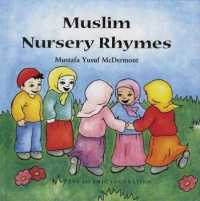Full Description
Advocates and practitioners of transitional justice have long sought to reach for a singular model that could anticipate how to co-ordinate, sequence and create complementarity between the raft of mechanisms and activities that fall under its banner. However, there has been surprisingly little research that explores how varied dimensions of transitional justice practice can, or should, work together in particular social contexts to effect social change. To address this gap, this book provides an innovative, and interdisciplinary, understanding of the necessity of context-specific designs for post-conflict redress. Demonstrating that transitional justice practice must necessarily be context-specific, the book brings together contributions from distinguished scholars across the globe in order to show that disparate historical, cultural and legal contexts require equally distinct approaches towards social healing. In so doing, the book moves towards what the editors have dubbed 'a post-conflict action framework' that would allow for immediate interventions that are sensitive to the socio-cultural context they hope to influence.
Contents
Table of ContentsIntroduction: Sari Wastell and Claire Garbett Section 1: The cultural and political contexts of transitional justiceCath Collins Anna Bryson Rachel Kerr Chris Lamont Section 2: The gender dimension of transitional justiceJohn Nagle Nicola HenryClaire Garbett Section 3: Security and development in post-conflict statesAdil HosseinTobias FlessenkemperLina Malagon-BrettSection 4: Memory and memorialization in transitional justicePeter Manning Lisa J. Laplante Zahira Araguete-Toribio Noa Vaisman Magdalena Zolkos








